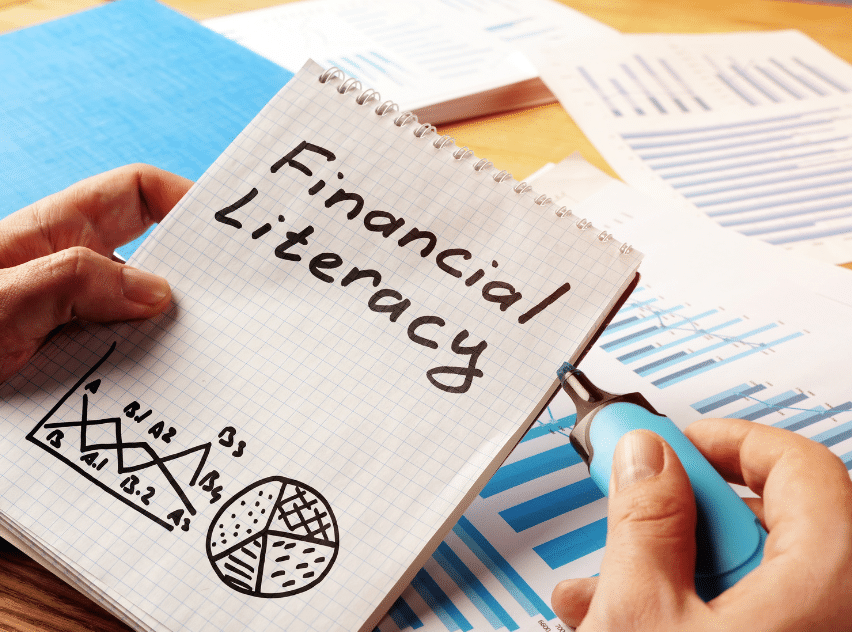As parents, we all want to raise kids to be independent and competent adults. We work hard to build their self-esteem, their confidence, and guide them through life’s many choices. However, we don’t always do a lot to build their financial skills. Sometimes this is because it’s difficult or uncomfortable to talk about money. Sometimes it’s because we don’t feel very confident in our own financial prowess and are concerned about questions that we may not know how to answer ourselves.
Regardless of the reasons, if we want our kids to be financially stable and secure, it is up to us to start teaching them about money basics. One easy way to do that is to teach them about saving once they get their first job or their first dollar of gift money, chore money, or allowance.
Before the paycheck comes, discuss these questions with your kids:
- Does your family believe in tithing or making charitable contributions with those first dollars?
- What percentage of income goes to “emergency” savings? (We recommend at least 10% for those with bills to pay but perhaps much higher for a teen.)
- What percentage of income goes to long-term financial security? (We recommend at least 10% for those with bills to pay but perhaps much higher for a teen.)
- Do you expect your child to contribute toward college expenses? What percentage should be saved for that expense?
- How about buying or maintaining a car? Do they have responsibilities toward that or for gas and insurance? It’s important to learn that those things get expensive!
- Do they need to start paying for their cell phone or clothing?
- How much should be free to spend on “want to have,” fun, and entertainment?
If teens get a check and are free to spend it all on anything they want, they go down a spending path. Their wants can get bigger and bigger, and they can become less and less discerning about how they spend their money. When it is time to pay their own bills, it is a brutal shift in their reality! Most of the money goes to taxes and living expenses. Where’s the fun stuff? (We know, parents feel the pain every payday.)
However, if they learn that funds should be allocated to financial security first, to basic needs next, and then to “fun stuff,” they learn how life really works for adults. They are building up their own resources and starting to create financial security for themselves separate from their parents. We all hope this creates a feeling of pride and independence for them and puts them on a path to self-sufficiency and financial confidence.
We recommend that parents have these discussions with kids of all ages but especially with teens, whether or not they currently have a job, and share their own beliefs and practices around saving. It’s ok to admit to not knowing all the answers but offering to work together to find good answers is key. It’s also important to admit to your own financial mistakes and regrets. No one has been perfect with their money, and there is always much to be learned from mistakes. It is great to teach our kids the power of learning from successes and failures. Henry Ford said it best, “The only real mistake is the one from which we learn nothing.” You bet.
In future posts, we’ll continue to help our kids March Toward Financial Security by discussing the benefits of opening and funding checking and savings accounts, starting Roth IRA accounts, and using other tools to help them improve their financial skills.
To learn more or get help talking to your kids about money basics, please email me at gildea@homrichberg.com.
Download a copy of this article here.
Important Disclosures
This article may not be copied, reproduced, or distributed without Homrich Berg’s prior written consent.
All information is as of date above unless otherwise disclosed. The information is provided for informational purposes only and should not be considered a recommendation to purchase or sell any financial instrument, product or service sponsored by Homrich Berg or its affiliates or agents. The information does not represent legal, tax, accounting, or investment advice; recipients should consult their respective advisors regarding such matters. This material may not be suitable for all investors. Neither Homrich Berg, nor any affiliates, make any representation or warranty as to the accuracy or merit of this analysis for individual use. Information contained herein has been obtained from sources believed to be reliable but are not guaranteed. Investors are advised to consult with their investment professional about their specific financial needs and goals before making any investment decision.
©2023 Homrich Berg.


